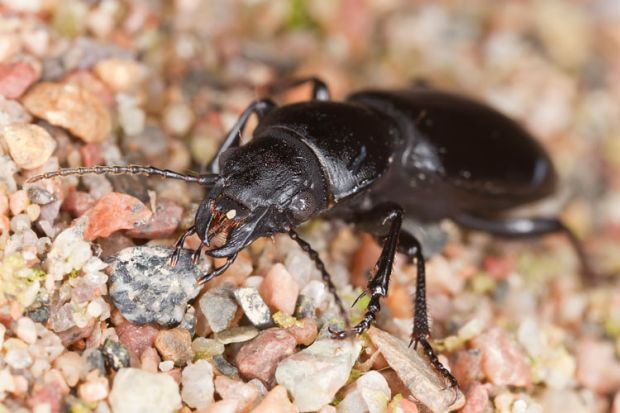The extraordinary scale of PhD fraud in Russia can be attributed to the reproduction of near-identical doctoral dissertations within universities, a new study says.
With more than 3,500 falsified theses identified by the anti-plagiarism group Dissernet in the past two years, PhD forgery is now an “integral part of Russia’s statehood”, rather than a “fringe phenomenon”, according to the analysis published in Higher Education in Russia and Beyond, a quarterly newsletter published by the country’s National Research University Higher School of Economics.
But its author and Dissernet’s founder Andrei Rostovtsev says that it is wrong to think about plagiarism in Russia in the same way as in Western Europe or the US.
“Most of the authors under scrutiny by Dissernet have…most probably never written a single page of their dissertations and might have never read them or even seen them at all,” says Professor Rostovtsev, a physicist based at the Russian Academy of Sciences’ Institute for Information Transmission Problems.
This type of fraud can be achieved when dissertations defended at one university department (for instance, sociology) are passed to another PhD candidate at another department (economics) and defended after a few words are changed, he explains.
“One notorious ‘scholar’ transformed a dissertation about the confectionery industry into a dissertation about the beef-and-dairy industry by substituting ‘dark chocolate’ with ‘imported beef’ and ‘nut chocolate’ with ‘bone-in beef’,” he says.
“All the data, spelling, tables and pictures remained unchanged”, although some authors alter their dating of statistics to make them seem more up-to-date, he adds.
Mass-production of PhDs is generally centred in Moscow and St Petersburg, where “conveyor units” were found for “PhDifying” politicians, public officials and teachers, he says.
A series of dissertations on ground beetles identified by Dissernet, all defended at the same university, also exhibited this hallmark of dissertation exchange, Professor Rostovtsev says.
Each of the PhD theses claimed to examine the various beetles found in sand dunes in the same part of Russia, but they all shared the same basic structure, standard conclusion and bibliography, he explains.
“Certainly the arthropoda of each and every dune deserve to be studied. Yet such work is nothing more than that of a research assistant who merely collects necessary specimens, therefore such dissertations are rather poor in terms of contents,” he says.
However, PhD fraud in physics, chemistry and biology are relatively uncommon, according to Professor Rostovtsev’s analysis of cheating authors identified by Dissernet.
“Most of the fake dissertations (40 per cent) accrue to economics”, with education, law, politics and other social sciences also popular with cheats, areas in which Russia is traditionally weak in international journal citation scores, he says.
“Scallywags prosper in the academic areas where Russia is still lagging behind,” he says, with fraud much smaller in the sciences in which the country’s academy has some international standing.
Dissernet has now built up a unique database of plagiarised dissertations and developed a semi-automatic algorithm to detect when editors of pay-to-publish journals – in which unoriginal PhDs are routinely published – have been connected with dissertation fraud, he says.
However, with PhD fraud now “well-integrated into the contemporary Russian political system”, this is unlikely to be enough to stop this “plague of major academic transgressions”, he concludes.
Register to continue
Why register?
- Registration is free and only takes a moment
- Once registered, you can read 3 articles a month
- Sign up for our newsletter
Subscribe
Or subscribe for unlimited access to:
- Unlimited access to news, views, insights & reviews
- Digital editions
- Digital access to THE’s university and college rankings analysis
Already registered or a current subscriber?




